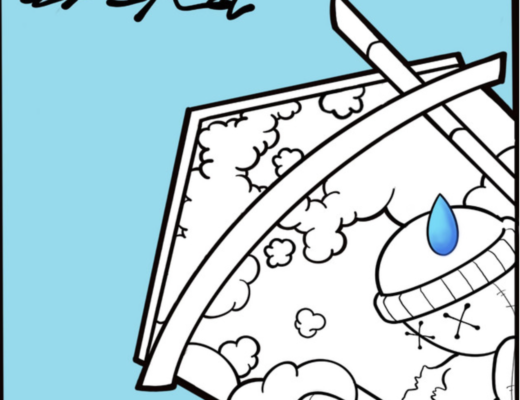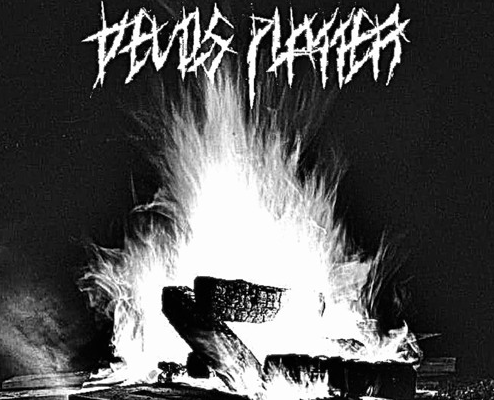In this exclusive A&R Factory interview, Sled Dogs delved into the creative odyssey of their debut album, exploring the profound themes of change and personal growth that fuel their music. From managing multiple roles such as writing, playing, and producing, to overcoming technical challenges and selecting the perfect vocalist, Sled Dogs provides a window into the meticulous craft behind their upcoming release. Discover the passion and philosophy that shape their sound, and learn why the track “Scalawags” holds a special place in their artistic journey. This insightful conversation promises to deepen your appreciation of the artist’s dynamic and introspective approach to music.
Sled Dogs, welcome to A&R Factory! Thanks for the opportunity to sit down with you ahead of the release of your debut album, we’d love an insider view into your creative process from the initial concept to the final master. What inspired the themes and lyrics of this album? Were there any specific events or experiences that influenced your writing?
“I’d say the biggest theme throughout this album, like a lot of the things I write, is change. Change is the only constant throughout day-to-day life and it’s something that I both welcome and am afraid of. I recently started therapy again and a lot of the lyrics deal with feelings of stagnation and the desire to be something more, and something greater, than what I currently feel like I am.”
You’ve taken on multiple roles in the creation of this album—writing, playing instruments, recording, mixing, and mastering. How do you transition between these different roles, and which part feels the most gratifying?
“I map out different days for different things that need to get done. One day will be spent writing and getting ideas down while another day will be dedicated to fleshing out those ideas into full-length songs. I like to do the mixing and re-amping on their own days as well, ear fatigue is a real thing and I’ve gotten migraines because of it. I think the most satisfying part is the writing process as a whole, getting that “aha” moment of finally piecing a riff together or landing a tricky drum or bass fill.”
Could you describe any specific challenges you faced while producing the album and how you overcame them?
“I’ve never really recorded anything heavier than my wife and I’s indie/rock band so it was a challenge to get all of the levels just right. I definitely learned a lot about re-amping and double-tracking. The sixth track has a recording of a fire pit on it and it was really tricky to record it without melting my microphones or burning my hands while shoving the mics into the heart of the fire, but it worked out and it sounds great.”
How did you go about selecting the right vocalist for this album? What qualities were you looking for?
“Since I am not a confident singer of any genre, I really wanted someone who gets it and appreciates the jokes that I throw into the tracks (whether they’re the track names or fun plays on metal tropes) and I found that in my co-worker Cheyenne. We both share a love of all types of metal, whether it’s progressive metal like Tool or doom metal like Weedeater, we were able to click and get on the same page.”
What track on the album are you most proud of and why?
Track 7, Scalawags, is probably my favorite, it’s in an odd time signature and the riff is catchy. I find myself listening to it more frequently than the others, and there’s a bit of history with it: a scalawag was a southern farmer who helped free slaves in the time of the civil war and was branded a traitor (or a “scallywag”) because of it.
Mixing and mastering are often overlooked by listeners but are crucial for the final sound of a record. Could you explain a bit about your approach and philosophy behind these processes for your album?
“The engineering side of music has been a lot of fun for me to explore since I’ve gotten into it. There’s so much to learn and an endless amount of possibilities if you’ve got the RAM for it. The way that I like to approach a recording once I’ve got the structure and the riff ideas down is I want to get one really solid take and use that as a base for everything else. I like to treat it like I’m recording on tape and each take needs to be as close to perfect as possible. That goes for all the instruments I record, guitars, drums, bass, auxiliary percussion, everything.”
How has your approach to music production evolved over the years, and what lessons from past projects did you apply to this album?
“Something that I’ve learned is that you can always get a better take, whether it’s immediately while you’re in a session or in a couple of weeks when you come back to it. There’s always room to improve. I’ve started using a lot of room mics, for drums mostly, but also for re-amping guitars and tracking bass through an amp. I’ve found that it adds more high end, which I think is something that a lot of modern metal albums don’t think about.”
Listen to Sled Dogs on Spotify.
Follow Sled Dogs on Facebook and Instagram.
Interview by Amelia Vandergast




No Comments